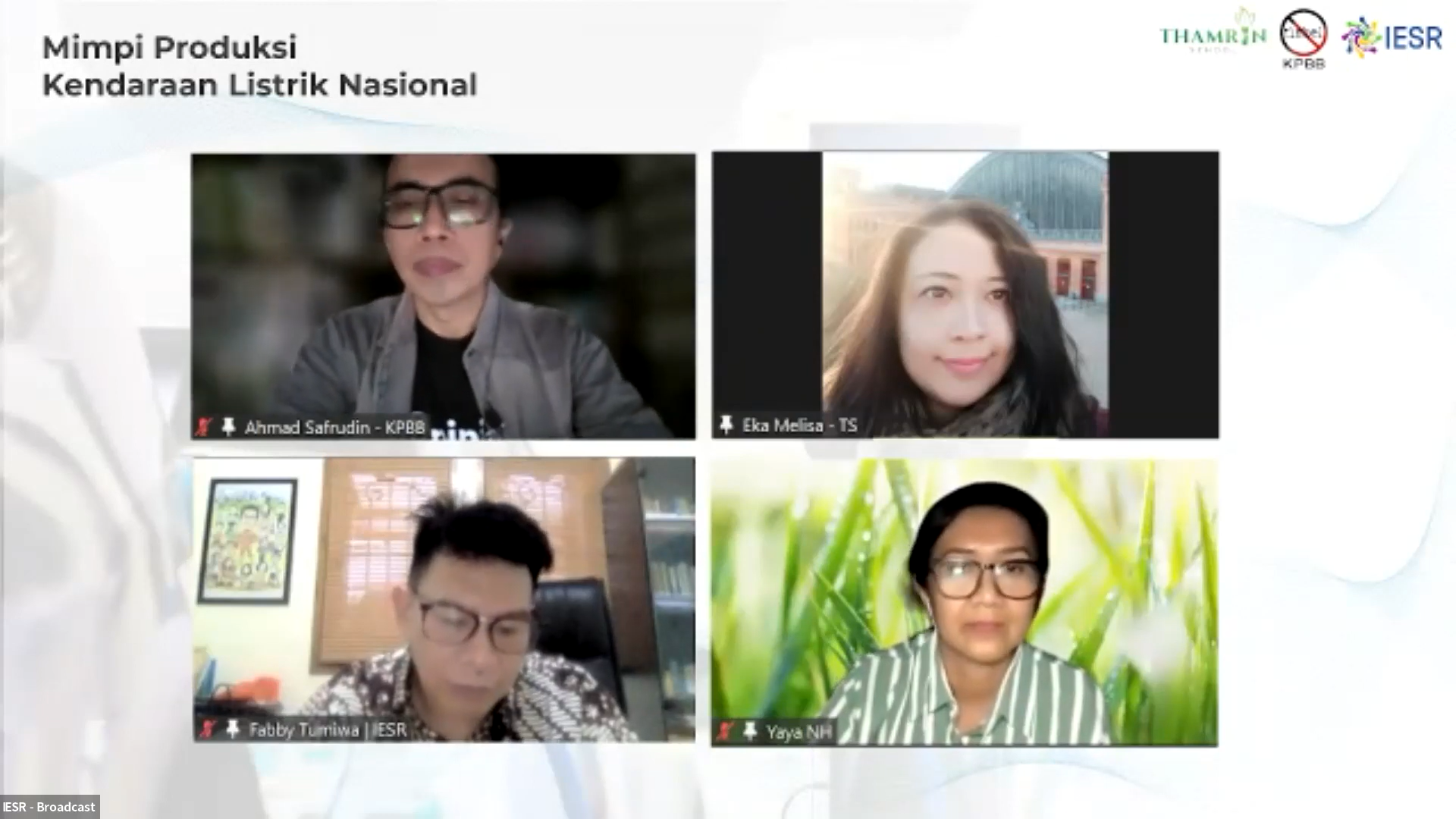Jakarta, March 2, 2022 – Indonesia has quite ambitious electric vehicle production targets. The Indonesian government is targeting 2 million electric cars and 3 million electric motorcycles by 2030. The Ministry of Industry has set a more ambitious target of 13 million two-wheeled vehicles and 2 million four-wheeled vehicles by 2030. However, until September 2021, electric vehicles will operate only 654 units.
Responding to the gap between this target and realization, the Institute for Essential Services Reform, Thamrin School of Climate Change and Sustainability, and the Committee for the Elimination of Leaded Gasoline (KPBB) held a discussion to identify obstacles and opportunities for the development of national electric vehicles.
Fabby Tumiwa, Executive Director of IESR emphasized the importance of developing an ecosystem that supports electric vehicles. Especially if it is associated with an agenda to reduce greenhouse gas emissions from the transportation sector. The lack of an ecosystem that supports electric vehicles, such as public charging stations, raises consumer doubts about switching to electric vehicles. From an industrial perspective, it is important for Indonesia to develop its own battery industry to reduce the price of electric vehicles.
“In addition to reducing the cost of electric vehicles, it is also to pursue the fulfillment of local content requirements (TKDN). Batteries, which are one of the main components of electric vehicles, can meet 30-40% TKDN, “explained Fabby.
Ahmad Safrudin, Executive Director of KPBB, explained that Indonesia’s fuel subsidies have burdened the Indonesian state budget. Data for 2019 shows Indonesia’s consumption of fuel oil reaches more than 68 billion Kilo Liters. The government itself has tried several ways, such as the use of CPO biodiesel starting in 2015 to reduce dependence on imported fuel. Not only from a fiscal perspective, the high consumption of fuel also affects the level of emissions produced by the transportation sector.
“For example, in Jakarta, for the last 10 years (2011 – 2020) the air quality based on the content of PM10, PM2.5, O3, and SOx as the dominant parameter has exceeded the recommended quality standards,” explained Ahmad Safrudin.
The LTS-LCCR document which is the compass for emission reduction in Indonesia has not been reduced to a more ‘down-to-earth’ regulation, especially the transportation sub-sector as one of the major emitters in Indonesia.
“The current policy is still leaning towards ICE (internal combustion engine) vehicles or conventional vehicles,” said Ahmad.
Ahmad emphasized that efforts to reduce emissions in the transportation sector must be integrated from upstream to downstream, including clean energy, clean technology, industrial and transportation management, emission standards, and most importantly in terms of law enforcement or how the implementation of the rules that have been made runs properly.
“To encourage the development of electric vehicles, what the government has to do is set emission standards, then implement a feebate/rebate scheme; namely providing incentives for industries that meet the standards and imposing fines for vehicle manufacturers who cannot meet the standards that have been set,” Ahmad explained.
Both Ahmad and Fabby also emphasized the importance of governance aspects for battery waste treatment. Reflecting on Indonesia’s experience in dealing with battery waste, the government needs firmness to treat battery waste to make rules for recycling used batteries and implement them and take firm action if there are violators.
Video on demand of this event can be accessed via the following link Mimpi Produksi Kendaraan Listrik Nasional – YouTube

